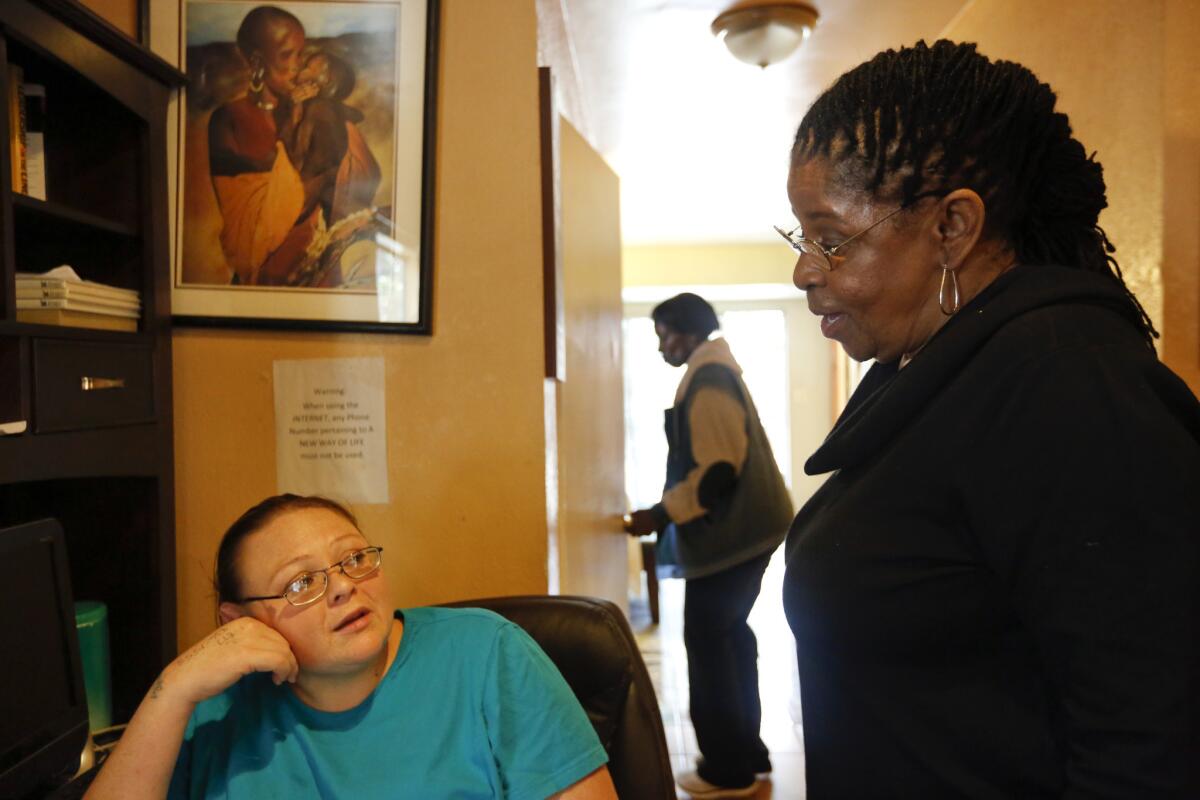Editorial: California’s Prop. 47 revolution: Make it easier for ex-felons to clean up their rap sheets

Susan Burton, 63, right, Executive Director and Founder of “A New Way of Life,” talks with one of the women in the program, Tasha Woolhite, 32, about how her job search went that day. Burton has benifitted from one of the lesser known aspects of prop 47, having an old felony reduced to a misdemeanor.
- Share via
There are about 1 million Californians saddled with felony rap sheets because they were convicted of petty theft or possessing drugs for personal use. Those crimes became misdemeanors a year ago when voters adopted Proposition 47, yet old felony records still keep most of those people from fully taking their places in society, even if they have lived crime-free for decades.
Should that matter to the rest of us? It should. It’s a basic American value that people who have done their time ought to be able to return to society with their rights and opportunities restored, especially when the crime in question was neither violent nor serious. The crimes are still crimes, and the rap sheets won’t disappear, but the records should be updated to reflect the fact that the offenses are now misdemeanors, not felonies.
Many people with felony records remain legally marginalized, unable to get good-paying jobs, inadmissible to many schools and virtually ineligible to care for foster children or even their own kids. All told, according to some studies, they are burdened by more than 4,000 restrictions that don’t apply to people with only misdemeanor records. It’s in the interest of all Californians to ensure that as many former offenders as possible can transition from incarceration to responsible positions in society as parents, breadwinners and members of their communities.
Proposition 47 applies to those newly convicted of a handful of nonviolent drug and theft offenses, but also to those whose sentences were completed long ago. The measure gave the latter three years to apply to have their records updated to show that their crimes are now misdemeanors.
The first year has already elapsed. Record-changing events such as the recent one at Exposition Park have drawn thousands of applicants, who get legal assistance and advice on gathering their documents, filling out their forms and going to court for final approval. But they represent a fraction of those eligible. Many remain unaware of their important opportunity to clean up their records — or of the time limit.
Why should there be a limit at all? It would be profoundly unfair to force a person to lead the rest of his or her life with a felony record for a crime that California deems a misdemeanor. The Legislature, which this year wasted time with several bills that foolishly attempted to roll back parts of Proposition 47, should focus next year on making it work for more people by sending the governor a bill to eliminate the three-year sunset.
Follow the Opinion section on Twitter @latimesopinion and Facebook
More to Read
A cure for the common opinion
Get thought-provoking perspectives with our weekly newsletter.
You may occasionally receive promotional content from the Los Angeles Times.






